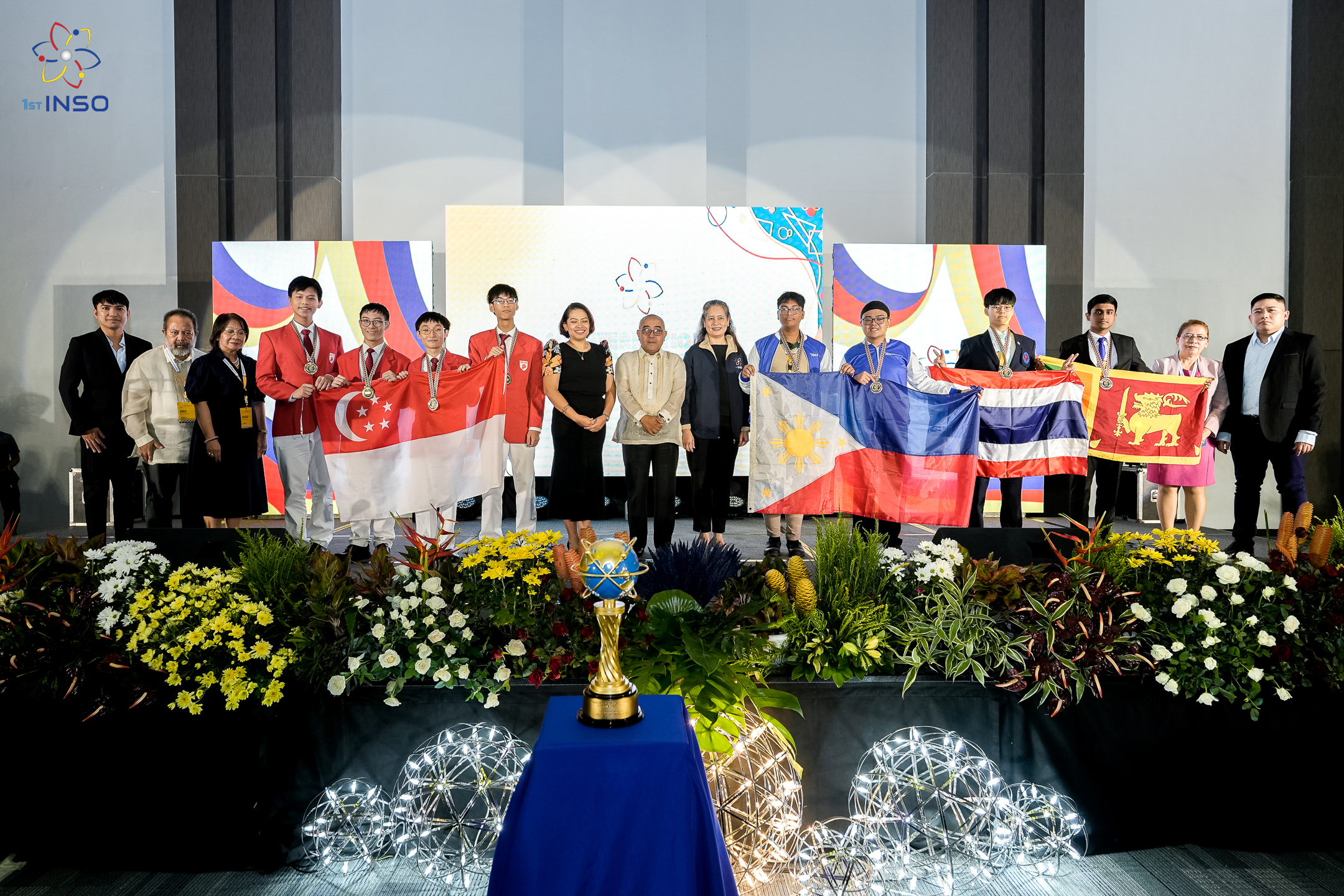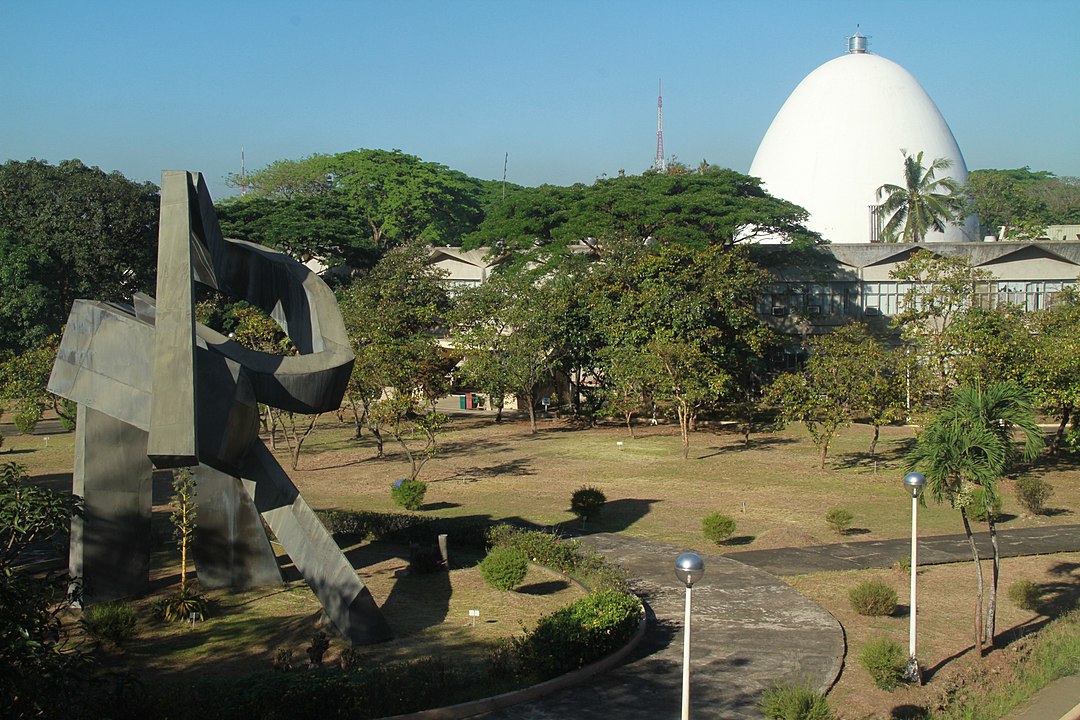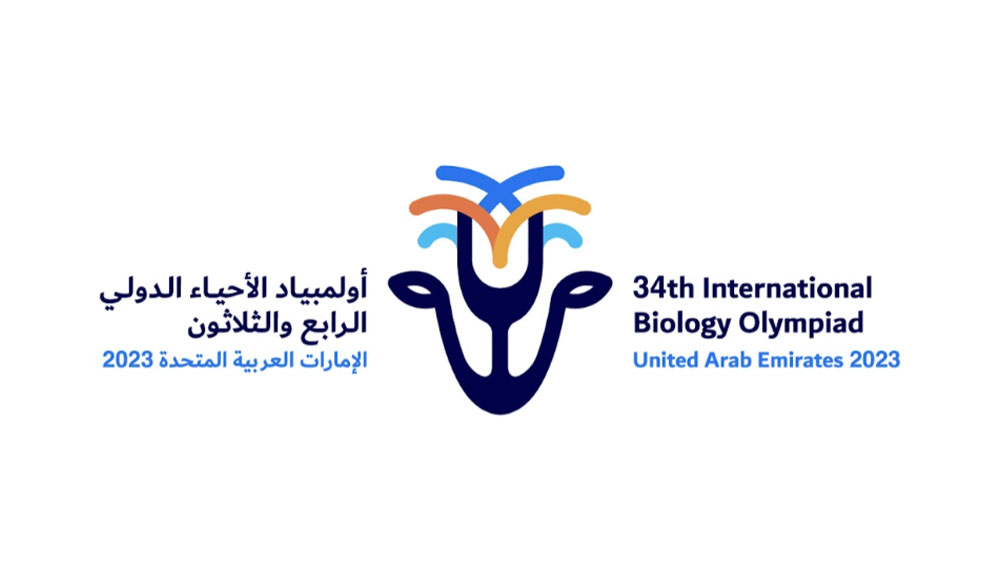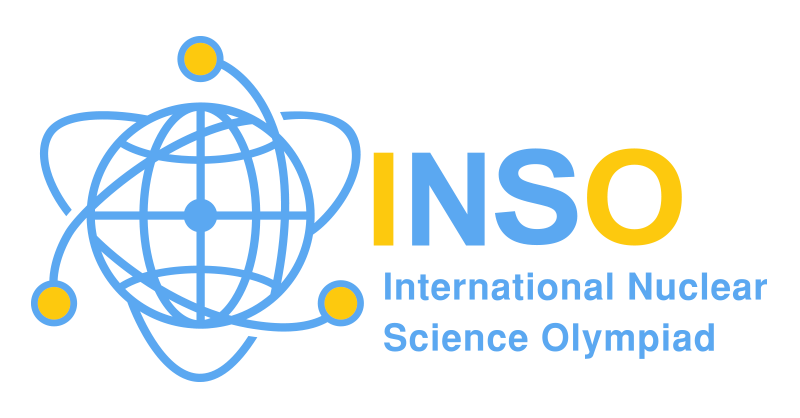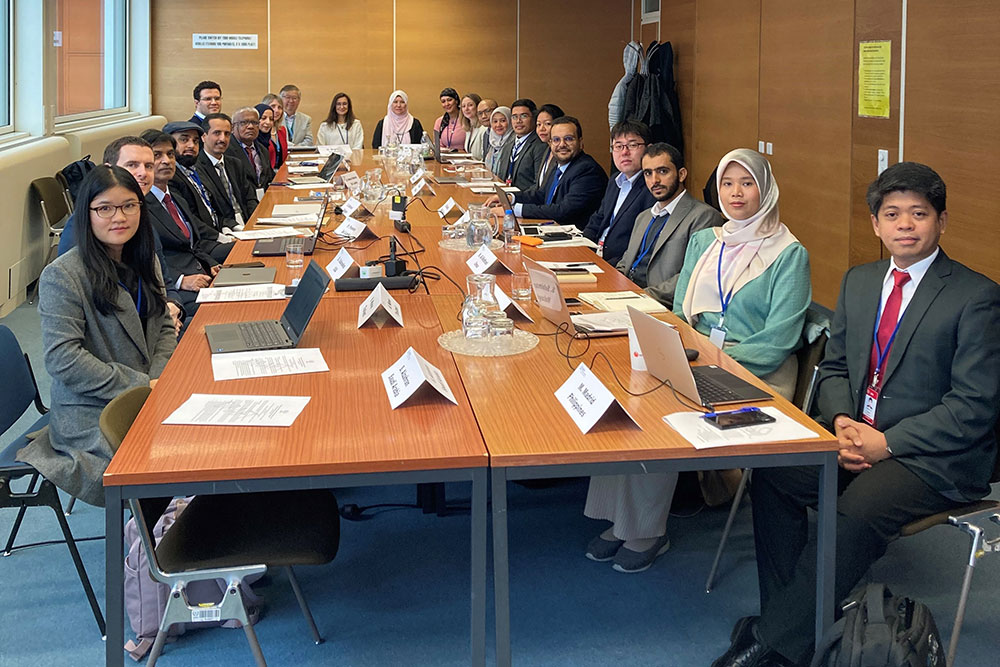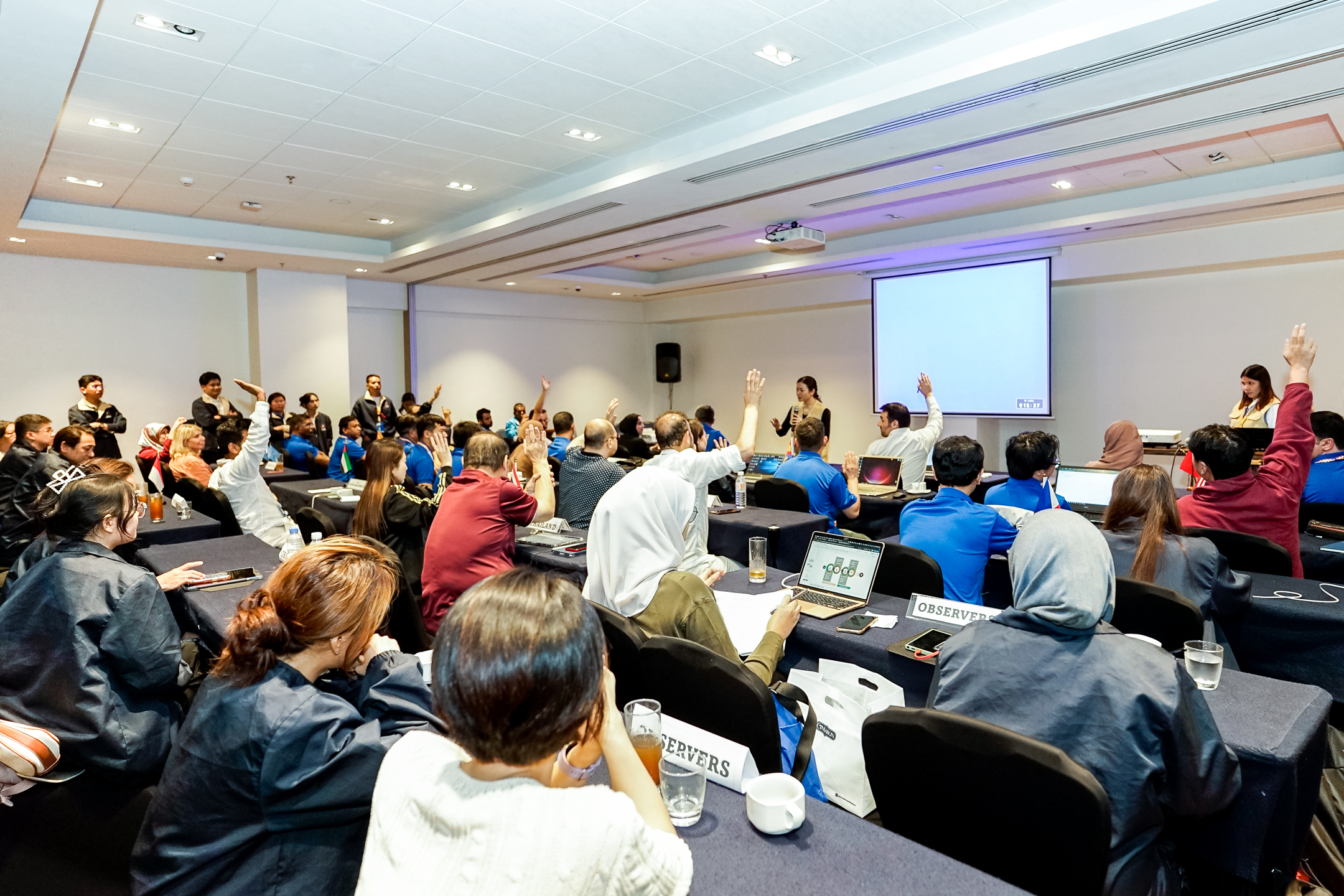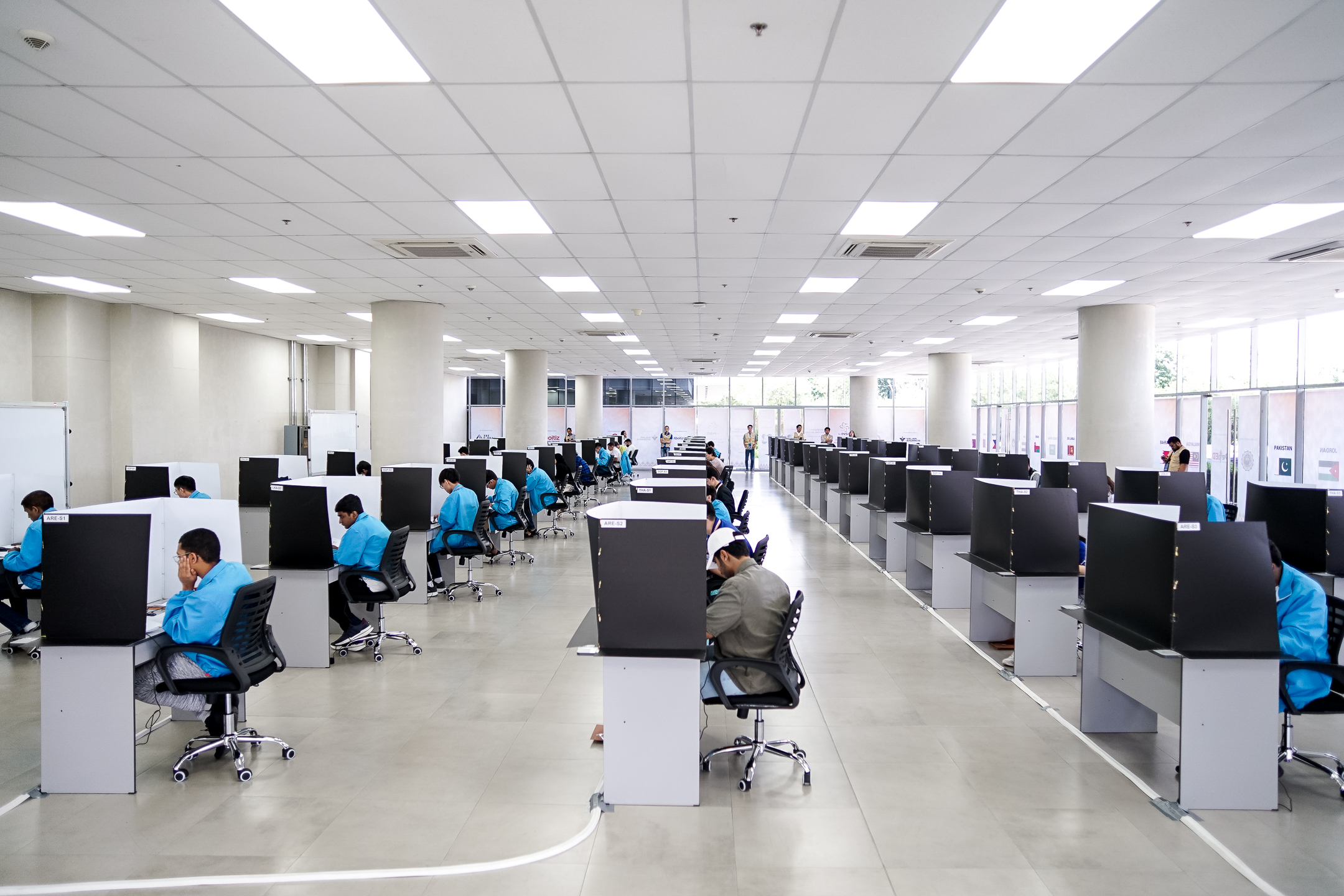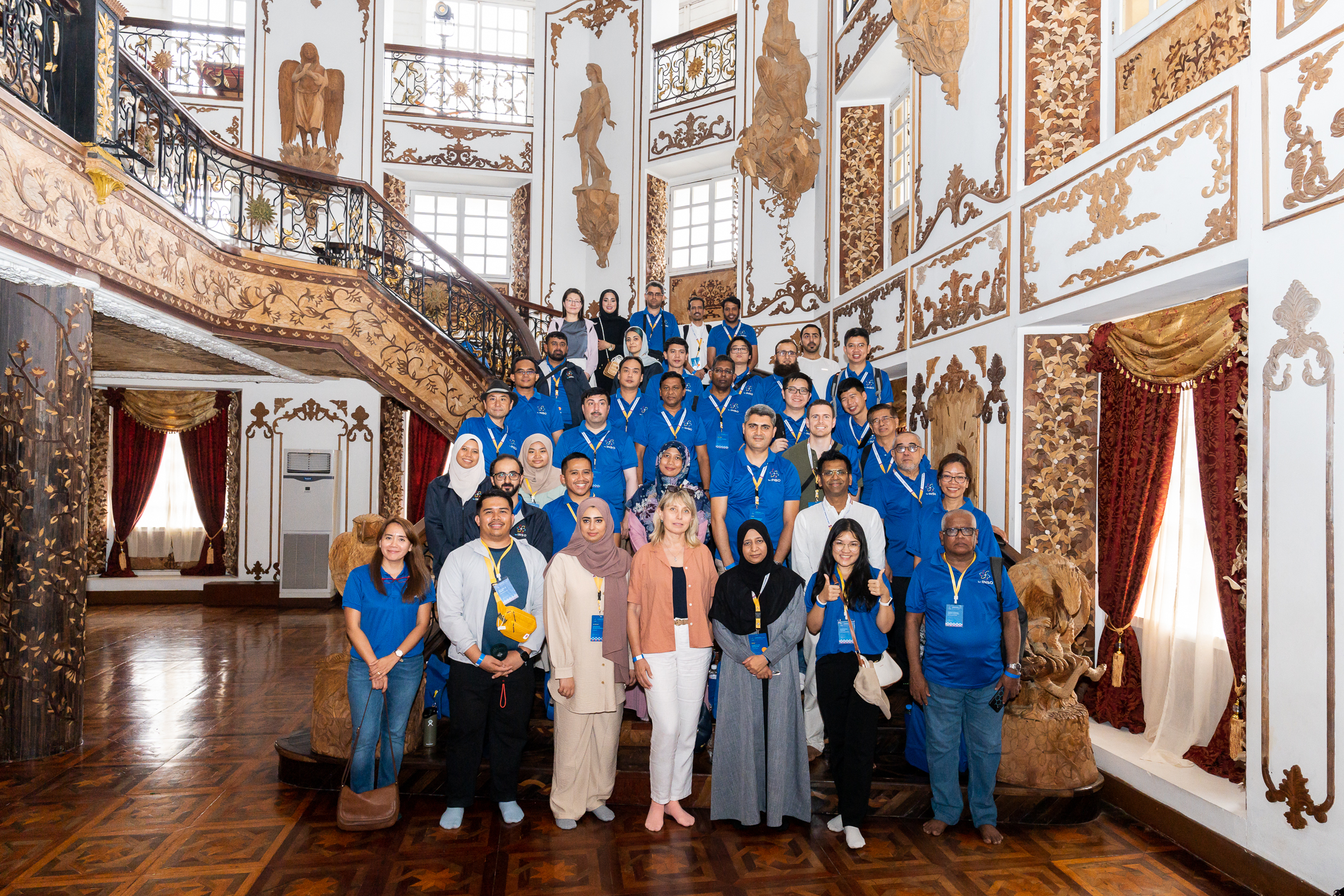7 August 2024
Malaysia is next host of the International Nuclear Science Olympiad
After its successful pioneer run at the New Clark City in the Philippines, the International Nuclear Science Olympiad (INSO) will hop on to its second leg in Malaysia next year. The Malaysian delegates eagerly received the INSO globe at the Turn-over Ceremony at the close of the first-ever INSO on August 6 at the SMX Convention Center in Clark, Pampanga.
Donated by the former Director of the International Atomic Energy Agency – Technical Cooperation for Asia and the Pacific Dr, Jane G. Abaya, the INSO globe started its journey this year and will be turned-over to next country-hosts from thence. It will serve as the symbol of the passing of responsibility from one INSO host to the next.
“We are working with the Ministry of Science and Technology to make this (next) INSO high-impact to develop the interest on nuclear science among the young generation,” said Dr. Rorlinda Binti Yusof of the Universiti Kebangsaan Malaysia, who received the INSO trophy with Dr. Mohd Hakimie Bin Zainal Abidin of the same university.
“We will gather the best brains, especially on nuclear science, in the whole world,” she told.
Meanwhile, Dr. Abidin revealed that his team participated in the first INSO to develop “a good relationship with the Philippine team, as we want to establish the INSO 2025 in Malaysia.”
“See you soon in Malaysia next year!” he said.
The Philippines as the pioneer host had set the stage and established the standards and the template which the next hosts can adopt.
The first INSO came up with 37 medalists-- eight gold, 13 silver, and 16 bronze among 55 contenders from 14 Asia-Pacific countries.
The medalists comprise a mix of junior and senior high school students aged 20 years and below. The contestants came as teams representing their respective countries, but they competed as individuals.
INSO/s main aim is to increase global awareness on the peaceful applications of nuclear science and technology, Particularly, it intends to enhance the interest of secondary school students and improve the teaching of nuclear concepts in educational institutions
Further, the INSO aims to eventually motivate participants to pursue courses and professions related to nuclear S&T.

